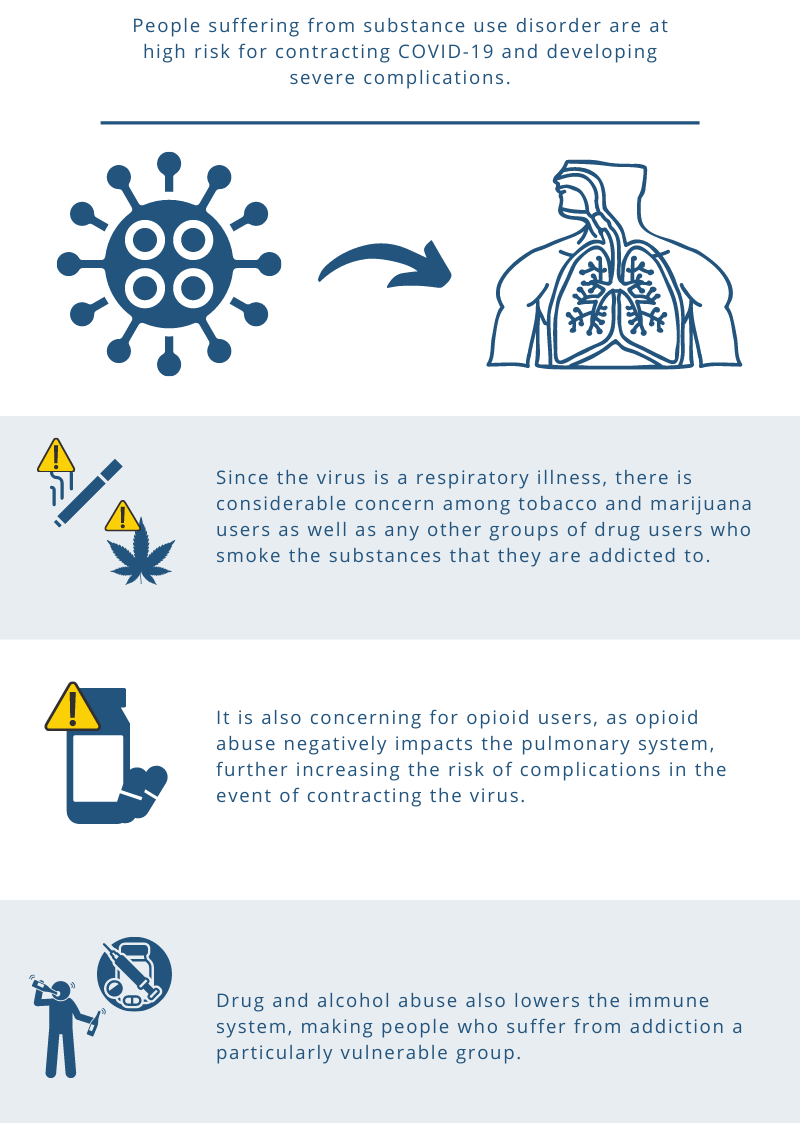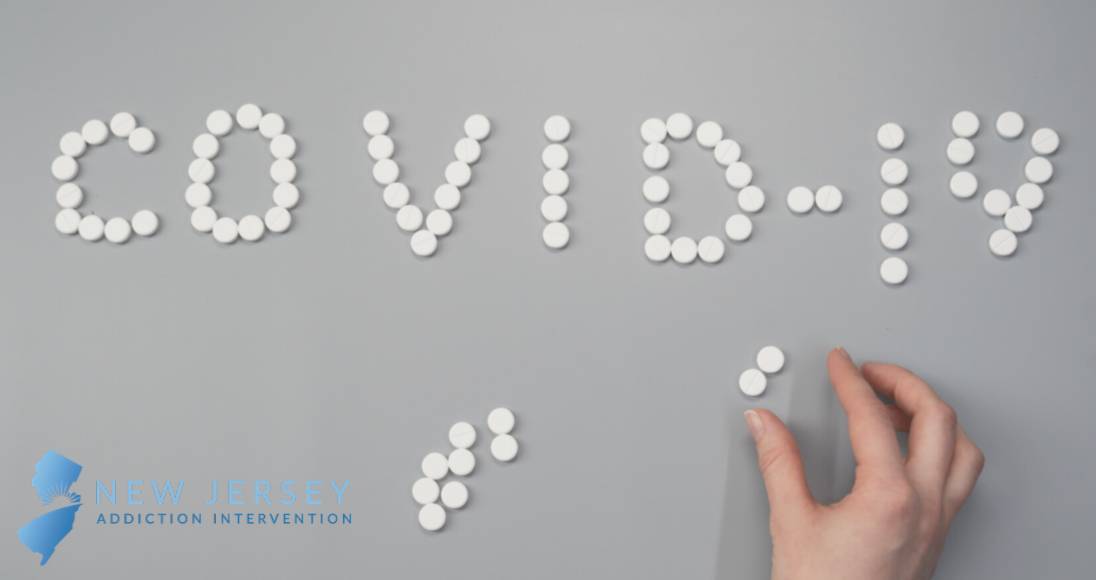The novel coronavirus, the virus which causes the disease COVID-19, has affected people of all walks of life, but people suffering from addiction are particularly hard hit. The first case of COVID-19 was traced back to a live animal market in Wuhan, China in December 2019. Since then, it has spread like wildfire across the globe, eventually making its way to the United States. The most common symptoms of COVID-19 include fevers, chills, dry cough, and shortness of breath. In severe cases, victims of COVID-19 viral pneumonia and subsequent Severe Acute Respiratory Distress Syndrome. This requires hospitalization and intubation to assist with breathing.
It’s already difficult to make the decision to get treatment for substance use disorder even without a global pandemic. However, recovery is more important now than ever. In some cases, people may find their addiction escalating. For people already in recovery, there is a very real fear of imminent relapse. Not only are people who abuse substances more likely to suffer from severe complications, but people in recovery are also more prone to relapse due to the subsequent difficulties and challenges associated with the global pandemic.
What COVID-19 Means For People With Substance Use Disorder

In addition to the health concerns of drug abuse, individuals with substance use disorder are also more prone to homelessness.[1] This means they have a higher likelihood of being exposed to the novel coronavirus due to unsanitary living conditions and lack of resources. Furthermore, many have very limited access to healthcare, making it difficult for these individuals to seek medical attention if they begin to develop severe symptoms of COVID-19.
Individuals with substance use disorder are also more likely to engage in risky behaviors that put them at a higher risk of infection. [2] This includes needle sharing and risky sexual behavior, which can easily spread COVID-19 from one individual to another.
How COVID-19 Poses A Risk To People in Recovery
With widespread closures being implemented across the country in an attempt to combat the spread of the virus, many addiction support groups have had to shut down in-person meetings. Although many meetings have shifted to online platforms, such as Zoom, it’s still a major adjustment. Moreover, the uncertainty, isolation, and high levels of stress surrounding the current pandemic mean people with addiction need support more than ever. Those currently in recovery are at a much higher risk relapse due to the situation caused by COVID-19. [3] Without the usual support system in place, people in recovery may be tempted to resort to once again self-medicating to relieve feelings of loneliness or stress.
There is also the concern for individuals on a medication-assisted treatment plan. After all. These patients typically check in with their healthcare provider regularly in order to obtain the medications that are vital to their recovery. There is a rising concern that people in recovery will not be able to get the proper care they need to maintain their sobriety, which is why prescribing guidelines for many of these medications via telehealth has recently expanded. they are transitioning to telemedicine. This is where a medical visit can be conducted over a video chat. This allows people to speak with their healthcare providers in a safe manner and still be able to get the prescriptions they need. This transition can be crucial for some people in order to prevent relapse.
COVID-19 Is No Excuse To Delay Treatment
Many people suffering from addiction may feel inclined to forgo or postpone treatment to avoid contracting COVID-19. However, it is more important than ever to address a substance use issue. In these uncertain times, people may fear contracting the illness if they go to a treatment center. However, this is no excuse as people are no more likely to be infected with the coronavirus at a residential treatment center than they are anywhere else. Most importantly, addiction treatment is an essential service – and it keeps people healthy and out of the emergency room. This leaves open beds for people who contract the virus and need intensive care.
Treatment centers are taking more precautions than ever to ensure the safety of their clients. They are frequently sanitizing facilities and limiting group sizes to adhere to the CDC’s social distancing guidelines. They are also banning any outside activities as well as regularly checking temperatures and screening for other symptoms.
Detox and withdrawal from drugs and alcohol can be particularly dangerous during this time. People require medication management as well as monitoring by healthcare professionals in order to undergo drug and alcohol detox safely. It is incredibly important after detox to enter an inpatient treatment program to reduce the risk of relapse after detox. While COVID-19 is a dangerous disease, it is far more dangerous and deadly to let an addiction go untreated.
Don’t let the fear of the virus stop you from seeking treatment or helping an addicted loved one get the help that they need. Our intervention specialists in New Jersey are here to help you find a treatment center that meets your needs and is adjusting to the global pandemic in ways that keep clients safe throughout their course of treatment. Contact us today to get started.
Medically Reviewed: April 17, 2020

All of the information on this page has been reviewed and verified by a certified addiction professional.

